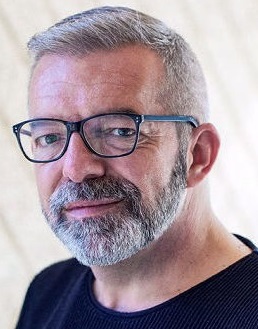 Written By:
Written By:
John Jackson
Industry Editor
In this article, John Jackson discusses the importance and value of creating a green circular economy, bringing attention to how businesses may need to consider adapting current processes into becoming more environmentally friendly. As well as this, John introduces the use of recycled or reconditioned products and materials as a considerable method that could significantly contribute towards a business's decarbonisation strategy.
The transition to become a net zero carbon nation is undoubtedly one of the biggest challenges facing the business community in Wales. It is the ultimate game changer, and to achieve it will mean that across all aspects of our built environment new approaches to our activities will need to be adopted. Decarbonisation will be on the agenda for many businesses and organisations across Wales, and will increasingly be moving up it as the need to change becomes increasingly apparent.
There are of course simple adaptations that can be made, and even small changes can make a big difference. Switching to LED lighting for example reduces energy consumption and the financial outlay can be recuperated by the reduction in electricity consumption. However, when you realise that on an annual basis over 100 billion tonnes of materials enter the global economy it quickly becomes evident that more fundamental change will be needed if we are to achieve our net zero carbon emissions target. These 100 billion tonnes of materials refer to power generation, construction in the built environment, food production, and consumer goods including clothes and phones.
This does create an opportunity to consider and adopt new ways of undertaking business, and one such example is the circular economy. In its simplest definition the circular economy, “…is an economic system that tackles global challenges like climate change, biodiversity loss, waste, and pollution”. Where “most linear economy businesses take a natural resource and turn it into a product which is ultimately destined to become waste because of the way it has been designed and made. This process is often summarised by “take, make, waste”. By contrast, a circular economy employs reuse, sharing, repair, refurbishment, remanufacturing and recycling to create a closed-loop system, minimising the use of resource inputs and the creation of waste, pollution and carbon emissions”.
In this respect, businesses can start by looking at how they can, wherever possible: reuse, share, repair, refurbish, remanufacture and/or recycle. In some organisations and businesses this may mean reviewing procurement practices or even simply allowing the people responsible for procurement the time to research and identify ways to bring these practices into the mix. Understandably we become accustomed to doing things in a certain way, and the transition to becoming a sustainable business environment will present challenges to the way things are done. However, this shouldn’t be seen as a reason not to make changes, after all on a global scale it's the very things we’ve been doing for decades that's led us to the climate emergency we face today, and the only way to fix it will be by making changes to the way we do business.
Another aspect of the circular economy is how it aims to keep products, materials, equipment and infrastructure in use for longer. Logically, once something has been produced the longer it can be in service the less need there is for it to be replaced, which in-turn lessens the impact on the environment. Here in Wales a good example is Greenstream Flooring, a social enterprise based in Porth that extends product life cycle by selling reconditioned commercial carpet tiles, so now there’s a viable, environmentally friendly alternative when choosing carpet tiles.
Ellen Petts founded Greenstream in 2008 and she explains how the enterprise operates in a way that’s supportive of the circular economy:
“We collect, sort, re-grade, resell and fit thousands of metres of otherwise burnt or buried commercial carpet that is perfectly good for second-life use. As a second-life material we incur zero embodied carbon in the manual process of resorting/reselling and we’re also able to offer great savings to customers compared to new commercial carpet. In addition, as a unique social enterprise in the flooring sector, we’re converting the money we might make from our services into employment and training and free carpet opportunities for the community around us”.
Flooring is just one of the many materials in our built environment that could be made available as recycled or reconditioned products, and this approach has the potential to become the foundation for new business start-ups across Wales. The Welsh Government is also supporting the Circular Economy through the Circular Economy Fund with both small and large scale grants being available for businesses to invest in infrastructure and equipment for eligible circular activities. Further details of these grants, including the application process can be found on the Wrap Cymru website.
As our work to decarbonise Wales increases at pace, we are seeing the emergence of a post-industrial dematerialisation “revolution” that will result in far greater use being made of what we already have in circulation. To further support our adoption of the circular economy, RemakerSpace has located to a new base in Cardiff University’s Sbarc/Spark Building, where this not-for-profit initiative will continue its work to support product life cycle extension, whilst also influencing attitudinal changes with respect to how we design, consume and dispose of products.
We can expect to see many more Remaker enterprises opening up across Wales, and with this not only will they be helping to protect our environment, they will also be creating a new form of sustainable industry that has the potential to benefit communities nationwide.












